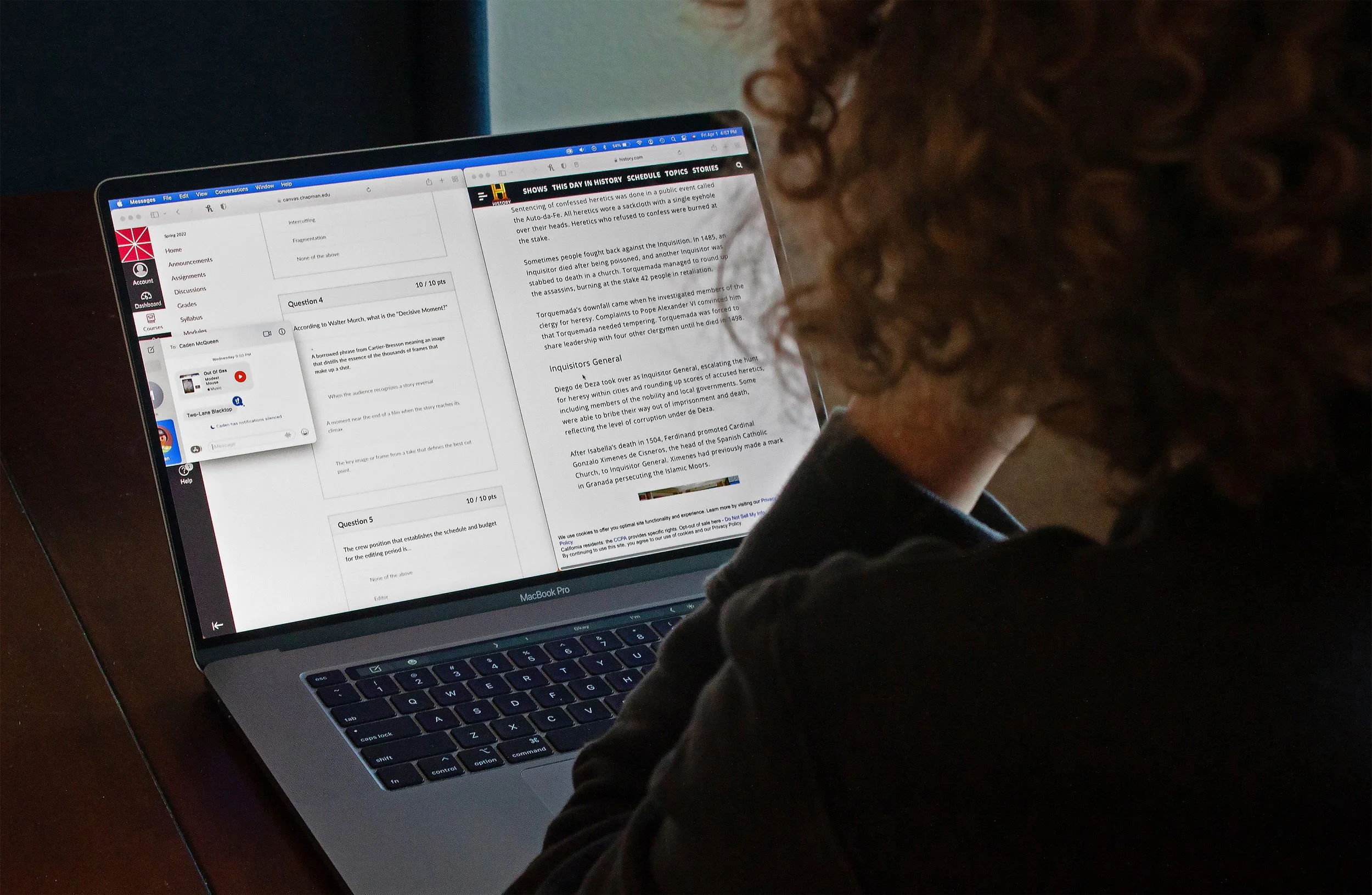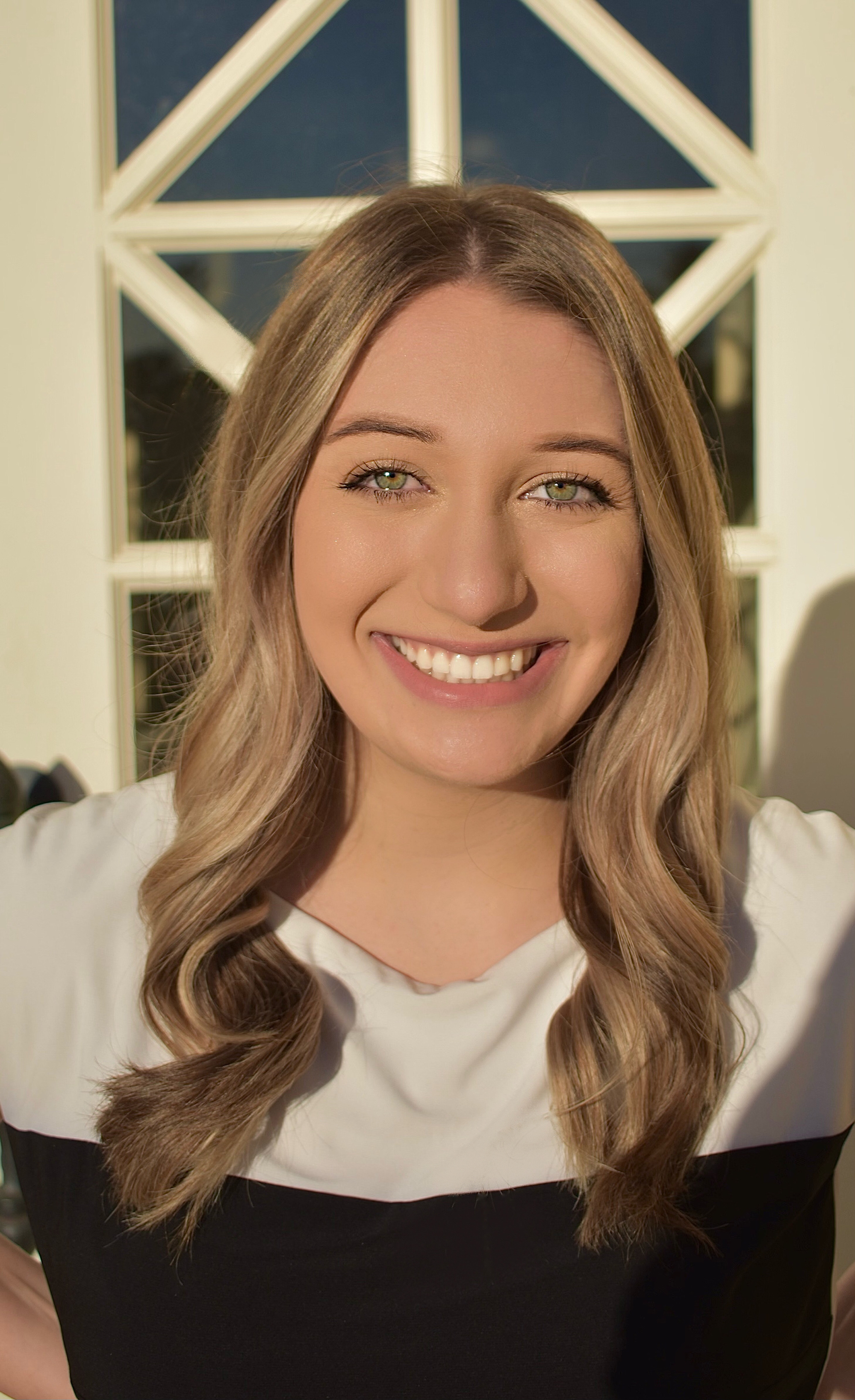Opinion | Cheating is no solo act
A student member of the Academic Integrity Committee has a message for the student body: cancel your Chegg subscription. Photo illustration by JAKE NEEDHAM, Staff Photographer
As a college student, it’s nearly impossible to be unfamiliar with self-proclaimed homework help websites like Chegg, CourseHero, Brainly — the list goes on. Utilization of these ‘resources’ has become second nature for a variety of assignment types; but has it gone too far?
This year, as a part of my senatorship within Chapman’s Student Government Association (SGA), I was appointed to serve as the undergraduate representative on the Academic Integrity Committee (AIC).
Rachel Berns, a sophomore health sciences major
By definition, we are “responsible for defining academic integrity and establishing policies and procedures for investigating, hearing and sanctioning alleged violations of academic integrity ... (making) investigations and determinations of alleged violations of academic integrity policies and (invoking) the appropriate sanction as stipulated by Chapman University’s policies on academic integrity.” Quite the mouthful.
I’ve gotten to be part of examining verbiage for sanctions, evaluating existing policies, and most prominently, participating in the hearing process for students wanting to appeal their alleged violation. It was daunting at first, thinking I’d be a person handing out punishments to my peers, but I’m grateful to have learned that Chapman’s outlook on academic integrity violations is genuinely quite reformative rather than punitive.
From the start of the appeal process, the committee takes all presented information into careful consideration and tries their best to advocate for the student through a lens of compassion. They are human, we are human; the AIC puts students’ academic well-being at the top of our priority list — not the sanction.
This is most easily recognizable in the plagiarism sanction, in which students must attend a sort of plagiarism training to learn exactly what plagiarism can constitute and how to avoid it in the future, with the hope that they don’t find themselves in this situation again. What most don’t realize is that a good majority of plagiarism cases stem solely from a lack of understanding of what can even be considered plagiarism; our goal is to bridge that gap through education and set students up for success later on, rather than just dealing out a consequence with no space to grow.
But in terms of cheating itself, there is a lot of gray area, making it challenging to define in any single sentence. Serving on the AIC has sparked a lot of questions for me about cheating culture in college, many of which have gone unanswered.
I wonder if certain types of cheating are better than another: is there an ethical distinction between using Quizlet to find answers to a low stakes homework assignment versus submitting a previous student’s final paper as your own? Does the magnitude of the assignment or the identity of the person whose intellectual property is being stolen make a difference in how a violation case should be sanctioned?
Ultimately, answering many of these questions is left to the respective professors, but they’re queries still worth pondering.
My experiences over the last couple of months have challenged me to think more critically about the implications of academic dishonesty, and I extend that challenge to anyone reading this. I’m sure we’ve all heard the overplayed “you’re only hurting yourself” line when it comes to cheating, but I’d argue that's far from true.
Sure cheating doesn’t yield real learning, and can result in individual consequences, but I dare us all to consider the flip side of things.
Does it not hurt the person who gets copied? Does it not sting to know their hard work and intellectual property is being passed off as others’ without consent? Does it not offend a professor to know that their students don’t have respect for their role as an educator? Does it not upset these faculty that their classes have completely disengaged from the learning process, knowing they’ll just get the answers from a friend or a website later?
Cheating is no solo act, and I think that got lost in translation somewhere along the road.
So, even amid all of the gray area, do yourself (and the AIC) a favor and cancel that Chegg subscription.


